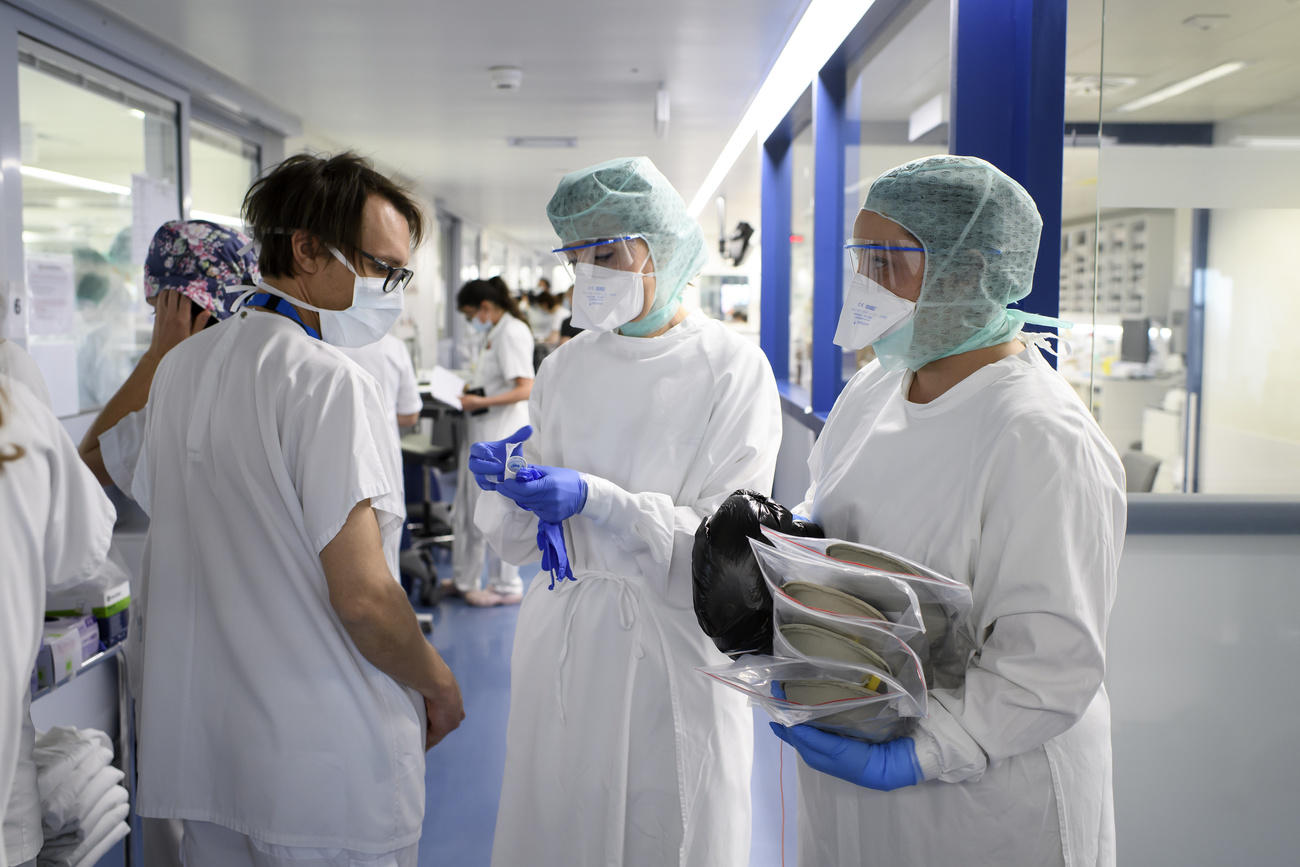
40% of Covid-19 intensive care patients under 60

Around 40% of Covid-19 patients admitted to intensive care in Switzerland were under 60 years old, according to the Swiss Society of Intensive Care Medicine (SSICM).
The figures, revealed by Swiss public television SRFExternal link on Saturday evening, show that more than a third of these younger patients did not have pre-existing conditions like diabetes or high pressure, which are known to put patients at more risk during a Covid-19 infection.
“For the large majority of patients on intensive care units, and these include younger patients, it’s a long process. Afterwards they have to spend a certain time on a normal ward. After that, it’s not so easy for them to simply go back to working again,” Antje Heise, SSICMExternal link deputy president, told SRF.
But there is a difference in mortality rate depending on age: deaths were more likely to occur in the older age groups, with the younger patients more likely to survive, SRF reported.
Staff infections
Meanwhile a survey of hospitals published by the SonntagsZeitungExternal link on Sunday found that by mid-May there had been 2,100 Covid-19 cases among doctors and nurses in Swiss hospitals. The infection rate among hospital staff was therefore low at slightly more than 2%.
The most strongly affected were hospitals in French-speaking Switzerland, which has generally had more cases of the coronavirus. Most infections did not result in complications; fewer than 12 cases resulted in a long hospital stay.
The newspaper survey 20 hospitals with almost 100,000 staff.

More
Overwhelming, lonely and stressful – life in the Covid-19 unit in Geneva

In compliance with the JTI standards
More: SWI swissinfo.ch certified by the Journalism Trust Initiative



























You can find an overview of ongoing debates with our journalists here . Please join us!
If you want to start a conversation about a topic raised in this article or want to report factual errors, email us at english@swissinfo.ch.